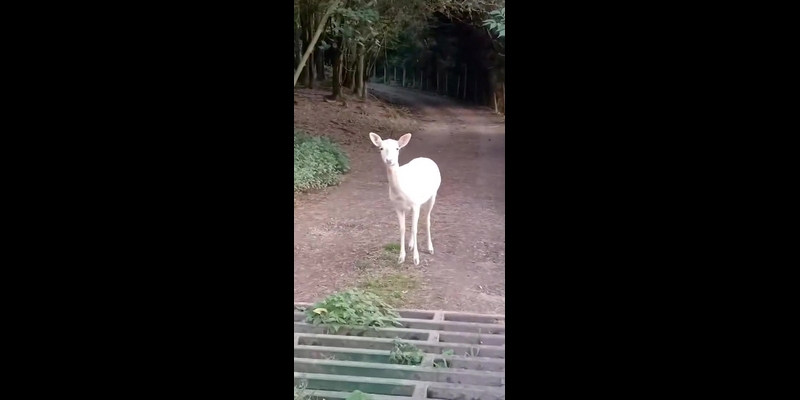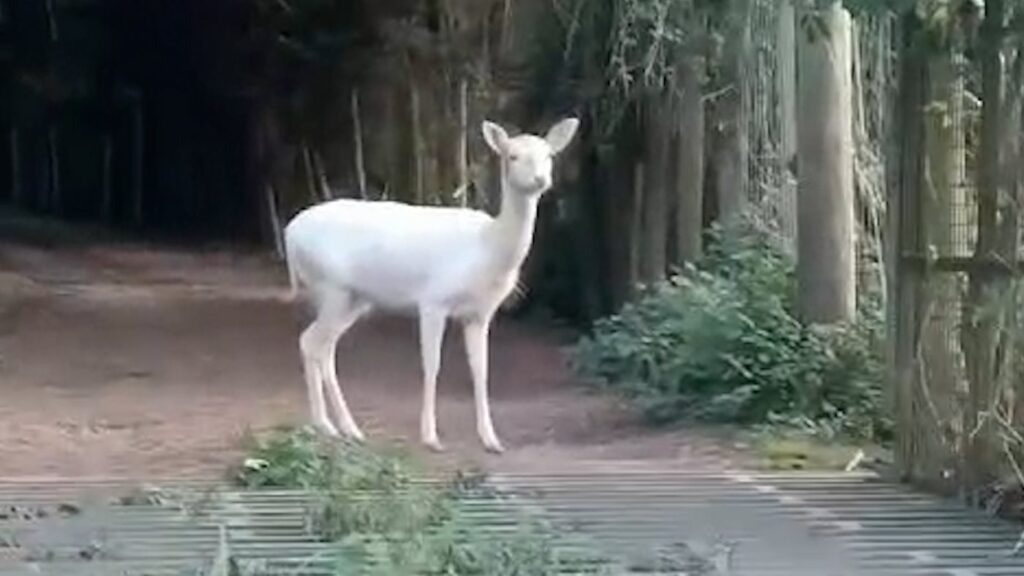A college student, Esha Patel, embarked on a fishing adventure with her father when nature gifted them an enchanting spectacle. Amidst the woodland, three deer gracefully emerged, a scene not entirely unusual, yet imbued with a distinctive charm.
In the narrative of this 19-year-old University of Cardiff enthusiast, two deer bore the typical brown hues, while the third possessed a coat of pure, dazzling white—a sight that transcended the ordinary into the extraordinary. Esha described the encounter as nothing short of “breathtaking,” emphasizing the adorable proximity of the white deer, which ventured within a mere ten feet of the duo.
Delving into the rarity of such a phenomenon in the UK, wildlife experts confirmed that witnessing this white morph is an exceptionally scarce occurrence. In fact, statistical whispers suggested that the odds of stumbling upon this ethereal sight stand at a staggering one in 30,000. Esha, buoyed by the wonder of the experience, contemplated testing her newfound luck by purchasing a lottery ticket, recognizing the profound stroke of fortune that had graced her day.
The uniqueness of the encounter even prompted Esha’s father to jest, questioning whether the majestic creature was indeed a deer or perhaps a mischievous goat in disguise—an amusing touch to an already extraordinary wildlife escapade.

Gazing at the images, one can easily grasp the sentiments echoed by Esha Patel’s father. The deer in question possessed a striking condition known as “leucism,” a recessive genetic trait distinct from albino animals. Unlike albinos, which are entirely white with pink eyes, leucism results in the absence of pigment cells across most of the body.
In the wild, white animals often face challenges as their coloration compromises their camouflage, impacting their survival. However, an interesting twist emerges for white-tail, roe, fallow, and mule deer in the UK and US. These species are primarily hunted by humans, and the Nature Conservancy suggests that the prevalence of leucistic deer might be increasing. Unlike other predators, humans often allow a white-tail with leucism to go undisturbed.
To safeguard the rare creature, the exact location of this leucistic deer remains undisclosed, ensuring its safety and preserving the magic of its existence in the wild.
